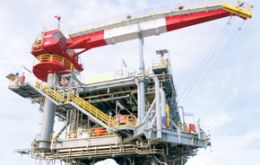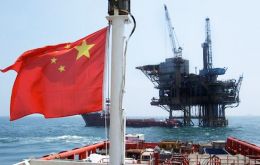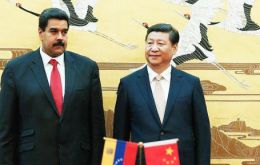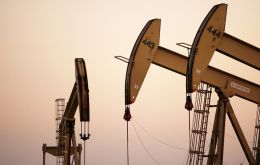MercoPress. South Atlantic News Agency
Energy & Oil
-
Thursday, January 15th 2015 - 08:13 UTC
Five ways to play the oil price plunge

The collapse of the oil price has created losers and winners, and like every major movement in a commodity sector, the trick for investors is figuring out which side of the trade to be on.The most obvious victim of the slide in Brent and WTI prices over the last 6 months has been the major oil producers. Holders of these equities have seen price slides up to 33%.
-
Thursday, January 15th 2015 - 05:09 UTC
Premier drastically cuts spending; Falklands projects included in 2015 agenda

UK hydrocarbons producer Premier Oil with strong interests in the Falklands expects to book a 300 million dollars impairment charge due to the plunge in oil prices and plans to cut jobs and investment by 40% compared to 2014, to rein in costs, it said on Wednesday.
-
Wednesday, January 14th 2015 - 07:47 UTC
OPEC member stands by group's decision not to cut output to tackle glut

Brent and US WTI crude oil prices fell to their lowest levels in almost six years on Tuesday as a big OPEC producer stood by the group's decision not to cut output to tackle a glut in the market.
-
Tuesday, January 13th 2015 - 08:56 UTC
The real cause of low oil prices: Interview with Arthur Berman

With all the conspiracy theories surrounding OPEC's November decision not cut production, is it really not just a case of simple economics? The U.S. shale boom has seen huge hype but the numbers speak for themselves and such overflowing optimism may have been unwarranted. When discussing harsh truths in energy, no sector is in greater need of a reality check than renewable energy.
-
Tuesday, January 13th 2015 - 07:39 UTC
Goldman Sachs forecasts oil price close to 40 dollars for most of fist half of 2015

The price of a barrel of the North Sea benchmark dropped on Monday by 5.5% to 47.36 dollars, its lowest level since early 2009. US crude oil was also at its lowest level since that time, down by 5% to 45.90 a barrel.
-
Friday, January 9th 2015 - 07:37 UTC
Oil and gas exploration companies expected to cut capital expenditure 17%

The world's oil and gas exploration companies are expected to cut capital expenditures 17% this year as a deep slump in crude oil prices takes a toll on budgets, according to a survey by Cowen and Company released on Wednesday.
-
Thursday, January 8th 2015 - 06:36 UTC
Top five factors affecting oil prices in 2015

As we ring in the New Year, let's take stock of where we are at with the oil markets. 2014 proved to be a momentous one for the oil markets, having seen prices cut in half in just six months.
-
Thursday, January 8th 2015 - 05:34 UTC
Maduro announces 20bn dollars in investment credits from China

President Nicolas Maduro said on Wednesday he had secured a total of more than 20 billion dollars in investment from major creditor China for economic, social, and oil-related projects.
-
Tuesday, January 6th 2015 - 23:11 UTC
Energy crisis as early as 2016

Low oil prices today may be setting the world up for an oil shortage as early as 2016. Today we have just 2% more crude oil supply than demand and the price of gasoline is under $2.00/gallon in Texas. If oil supply falls too far, we could see gasoline prices doubling within 18 months. For a commodity as critical to our standard of living as oil is, it only takes a small shortage to drive up the price.
-
Tuesday, January 6th 2015 - 07:41 UTC
US oil price falls below 50 dollars threshold, and markets decline sharply

The US oil price fell below the symbolic threshold of $50 a barrel for the first time since April 2009, before finishing the day at $50.05. The price of Brent crude also fell on Monday, dipping 6% to $53 a barrel.
